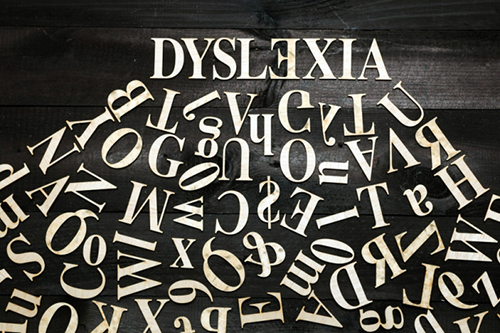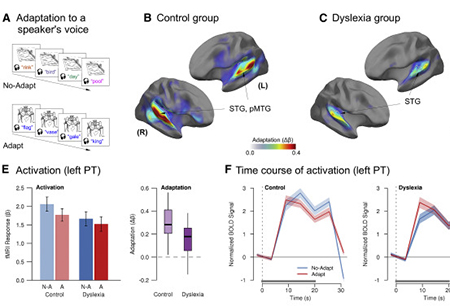Study Reveals Brain Function Behind Dyslexia
-
-
slice.mit.edu
- 1
Filed Under

For many years, dyslexia research has focused on studying specific portions of the brain involved with processing language, but a recent study found that the neurological disorder may actually be the result of a much broader difference in brain function. The study, which appears in the Dec. 21 issue of Neuron, was co-authored by John Gabrieli PhD ’87, professor of brain and cognitive sciences and director of the Athinoula A. Martinos Imaging Center at the McGovern Institute, and Tyler Perrachione PhD ’12, assistant professor at Boston University.
By studying brain activity via MRI scans, of both adults with and without dyslexia, researchers observed a common finding for those patients with dyslexia. “If something is seen over and over again, heard over and over again, physical changes in the brain make you more efficient,” Gabrieli told MIT News. This is called “neural adaptation” and is considered critical to learning. The research showed that dyslexic subjects showed much less neural adaptation to, for instance, hearing words said by a single speaker than the nondyslexic participants.

In the experiments, participants listened to spoken words, and looked at written words, pictures of objects, and pictures of faces—with varying frequency and repetition. For the participants without dyslexia, repetition led to brain changes but in people with dyslexia, that neural adaptation was reduced. Their brains worked almost as hard to process the information they had already seen or heard. The research suggests that the brain’s ability to change in response to experiences is reduced in people with dyslexia, pointing to a “core biological difference in the brains of people with dyslexia,” says Gabrieli.
One of the most surprising things, said Gabrieli, is that this effect was even observed in areas of the brain that perform tasks unrelated to reading, suggesting that dyslexia could affect other brain regions, not just those involved with language. “That’s a surprise,” Gabrieli says, because dyslexic people typically have problems only with reading. “People with reading difficulty don’t have difficulty recognizing faces, tables, and chairs.”
Although the research doesn’t offer a solution, it helps to gain a better understanding of what occurs in the brain for those who are dyslexic, which could help to better address the issue.
"This discovery helps us understand the biological basis of dyslexia," says Perrachione. "Since reading isn't something the brain has evolved to do, whatever is standing in the way of learning to read in dyslexia must be something more general that potentially affects many different brain systems, such as the adaptation deficit we observed. These results emphasize that a reading impairment has nothing to do with intelligence or motivation, but represents a different kind of information processing in the brain of individuals with dyslexia that makes reading in particular disproportionately hard, because reading is already such a hard thing for the brain to learn to do."
Next, Gabrieli plans to study young children to delve deeper into the findings and see if this reduced neural adaptation could even be detected before children learn to read, with the hopes of paving the way for potential treatments.








Comments
Alan Friot
Wed, 12/28/2016 10:02am
A bout1 20 years ago I learned that I have Deep Dyslexia. Very few people even know it exists. I don't have it this bad but as an example. Seeing a sign that says "Orchestra" some with it might say that it says sympathy. Orchestra becomes symphony and symphony becomes sympathy. One of my own experiences is that I got out of my car to go into a store, that I had been going bye for 10-15 years , to get a donut. As I went to go in I realized it said "Donna's Hair Cut" My brain had put Donna and Cut together and got donut. I sometimes have a hard time reading correctly thing too quickly. As a result over the years I've had other interesting experiences.